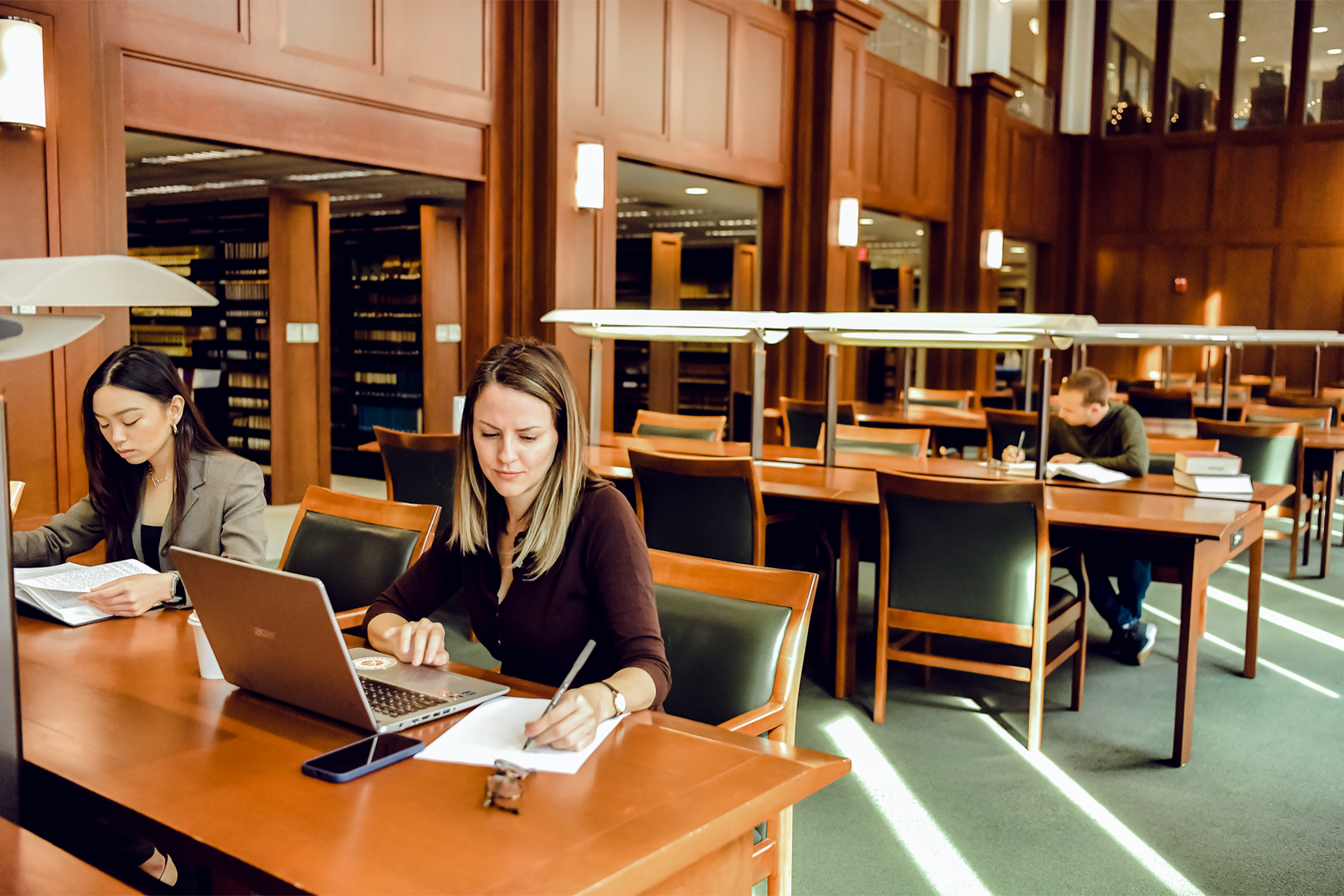Bruce Villard ’12, a distinguished Intellectual Property (IP) Manager and adjunct faculty member at the University of Maryland Carey School of Law, offers his students the uniquely valuable blend of professional expertise and mentorship as he continues his fifth year of teaching at Maryland Carey Law. Bruce seamlessly blends his rich professional experiences into his teaching role to help shape the next generation of IP lawyers. His commitment to both his profession and his alma mater, combined with his hands-on experience, provides students with a unique and comprehensive perspective on intellectual property law.
A 2012 Maryland Carey Law graduate, Bruce is licensed to practice law in the State of Maryland and in front of the U.S. Patent and Trademark Office (USPTO). Beyond teaching, he contributes to the school as an Alumni Board member. Currently, Bruce holds a pivotal position as an Intellectual Property Manager at Northrop Grumman Systems Corporation, an aerospace and defense company. He investigates and facilitates intellectual property licensing prospects in addition to methodically adjudicating and documenting innovation disclosures.
Prior to his current role, Bruce served in the global supply chain organization of the same company. Here, he immersed himself in the intricate world of IP within supplier agreements. Bruce not only navigated the complexities of intellectual property but also assumed leadership responsibilities, overseeing a small team of attorneys and legal professionals, who while not part of the in-house law department, also worked to negotiate supplier agreements.
Bruce's career has also included significant contributions to the IBM Corporation. His roles spanned from the development and testing of a high-transaction rate operating system to serving customers globally in the realm of this product's service engagements. Bruce's multifaceted experiences also extended to providing legal project management services for an organization focused on mobile platform development. The combination of these experiences formed the foundation where Bruce gained his expertise in his field that he now leverages for the benefit of his students.
Bruce recently presented at the Licensing Executives Society International conference held in Montreal in May 2023. This recognition affirms Bruce’s valuable contributions to the broader legal and intellectual property community. Bruce balances both his full-time and teaching responsibilities, proving that one can excel in both realms. His classroom is not just a place of learning but a gateway to real-world applications, where students are empowered with the knowledge and skills required to thrive in the complex field of intellectual property. Bruce was gracious enough to spend the time to share some insight into his juggling act as an adjunct faculty member:
How does your practical experience influence your teaching of licensing at the law school, and how do you incorporate real-world examples into your lectures?
I tend to focus on software licensing in my teaching as software is used across many industries. However, I also assign each student to present a few licensing-related current events each semester and encourage them to focus on their own area of interest. This could be the licensing of pharmaceuticals, music, art, gaming, and so forth. This helps broaden the class and exposes students to different license types and different uses for licenses.
Intellectual property laws can vary across different jurisdictions and industries. How do you ensure that your teaching of licensing remains relevant and adaptable to the evolving legal landscape?
Every year I take some time to refresh my class with some new cases, readings, and so forth. This helps to keep the class current. My students’ current event presentations also can sometimes signal upcoming trends that I work then to incorporate into future class discussions. These current event presentations also help to ensure the class doesn’t just focus on a single industry.
Can you share any innovative teaching methods or resources you've developed to engage your students in the study of licensing and intellectual property law?
I started using use the Slido app this year to help empower quieter students. Use of this app also allows for some anonymity thereby enabling students to submit answers to in-class questions without the fear of others ascribing an incorrect answer to a particular person. I also use an app that allows me to enter names into an electronic “wheel.” I can then electronically “spin” this wheel to randomly choose students to respond to in-class questions. This helps to evenly spread the burden of responding among all students in my class.
Do you have any advice for aspiring legal professionals looking to specialize in intellectual property and licensing?
I recommend that legal professionals who specialize in intellectual property develop solid communication skills such that they can explain challenging IP and legal concepts not only to other legal professionals but also to persons who may not have a legal background. Specific guidance that I give my students when giving their current events presentations includes minimizing the use of legal jargon, using analogies relating to common everyday scenarios, and including “takeaways” that summarize the important points of a discussion or presentation.

